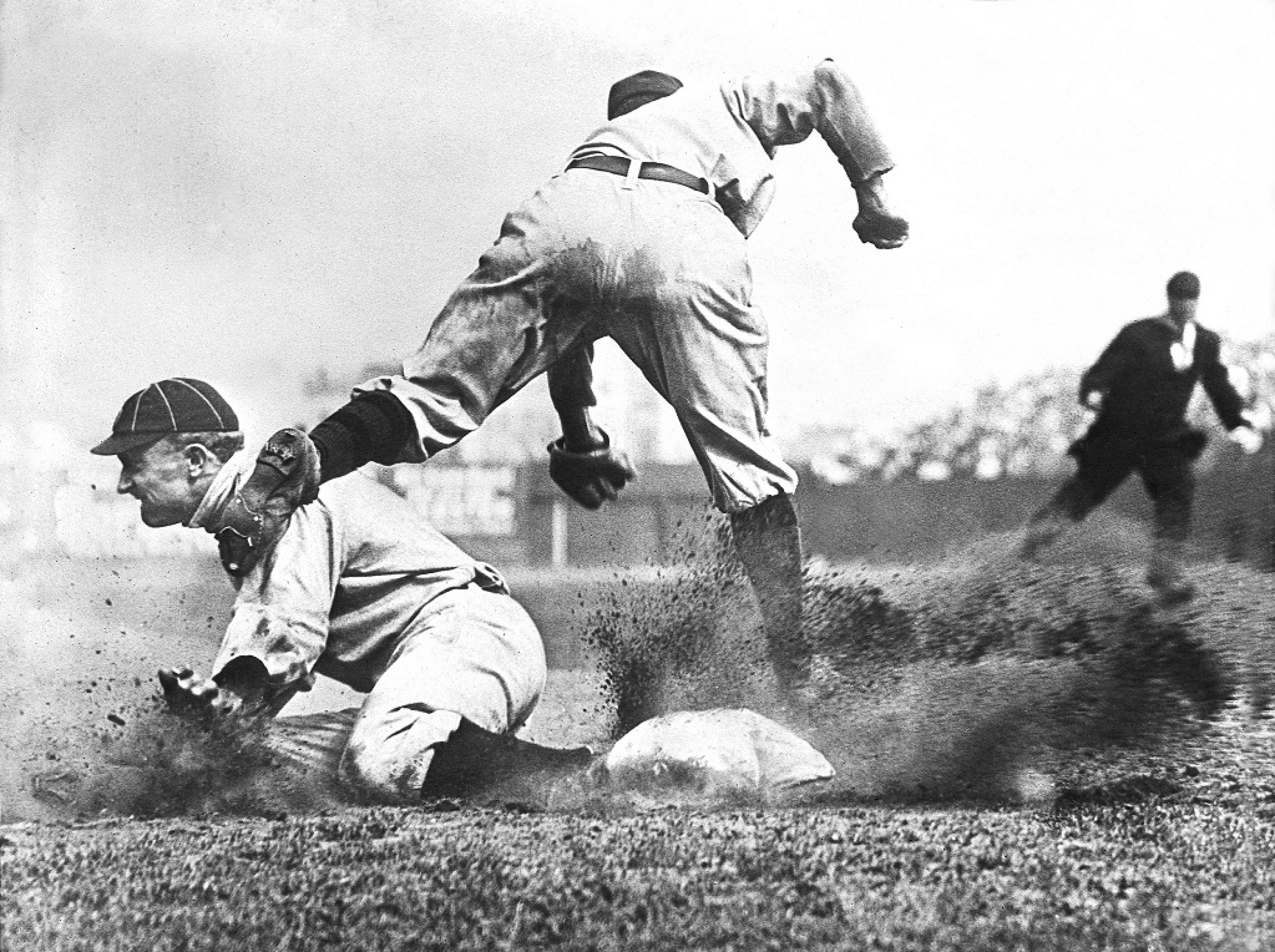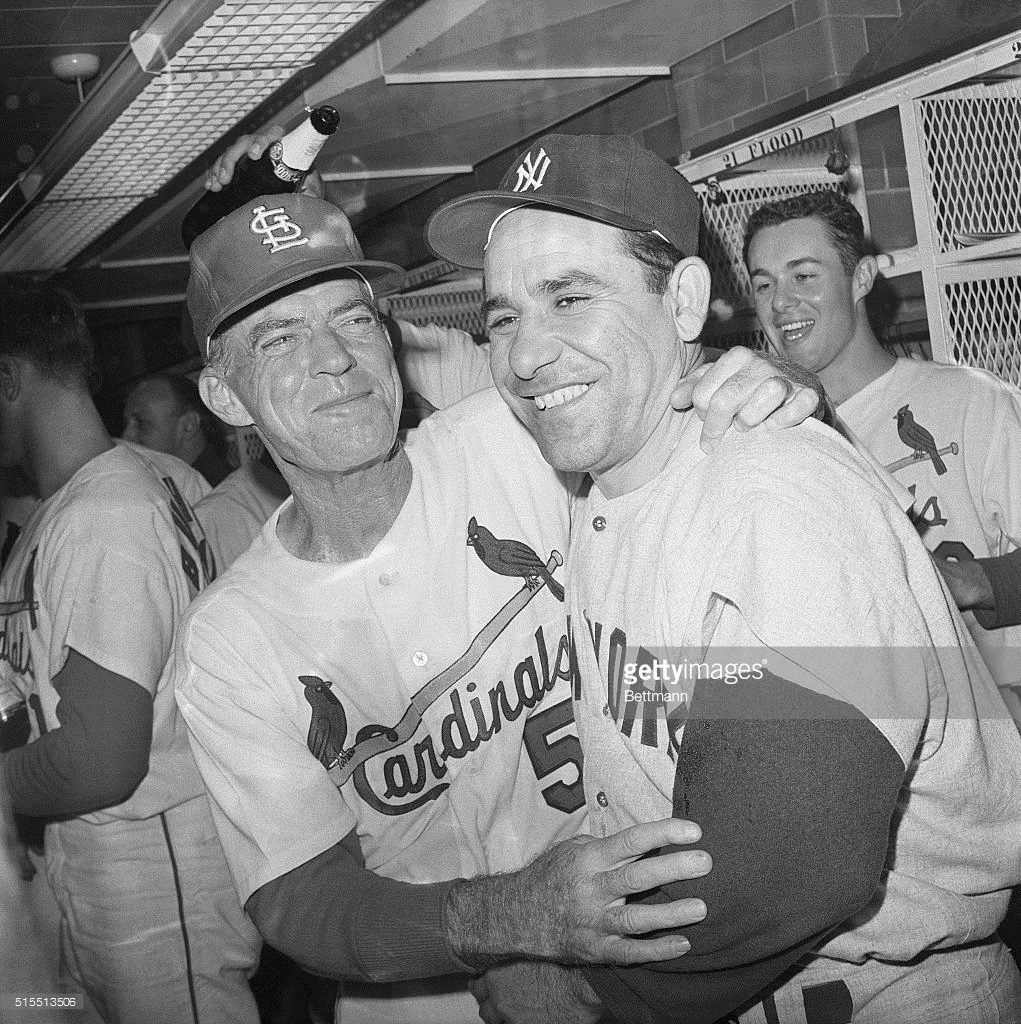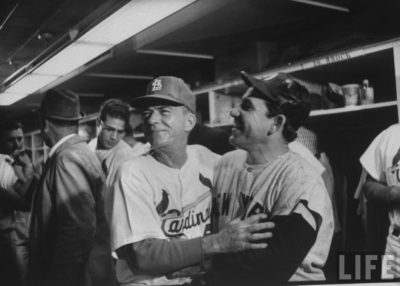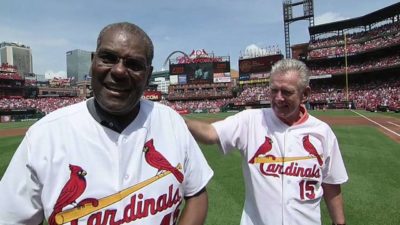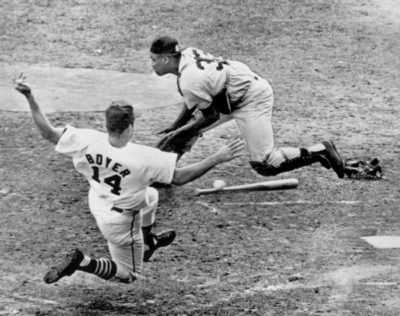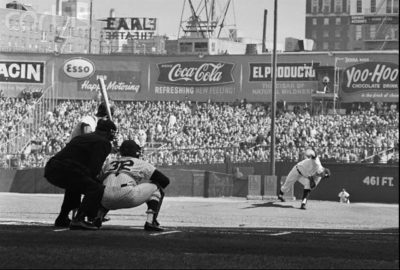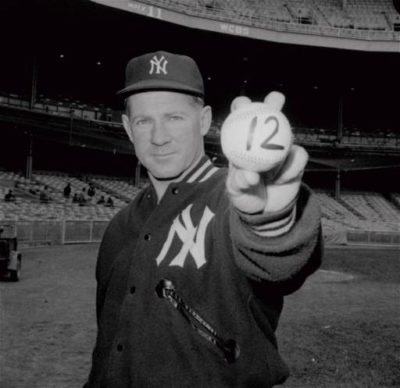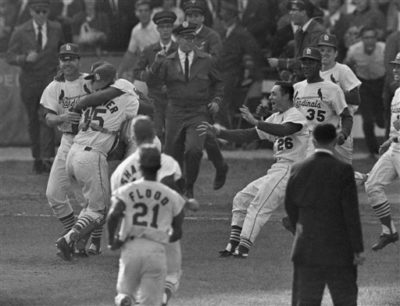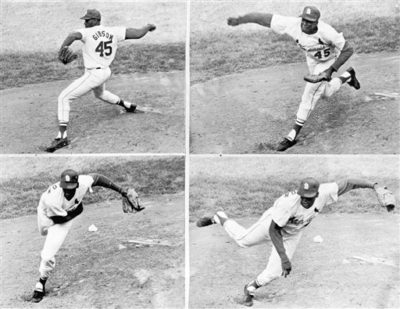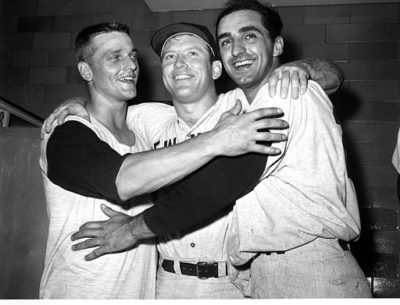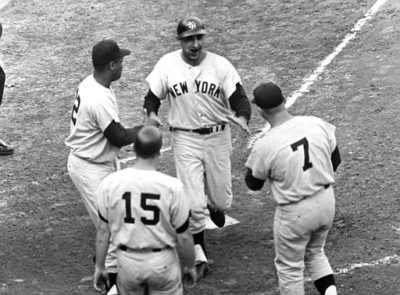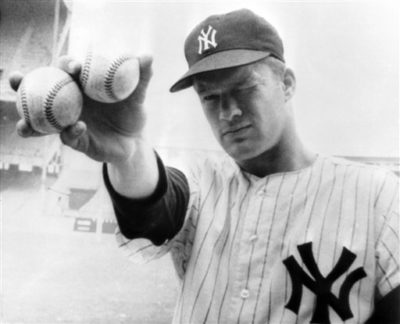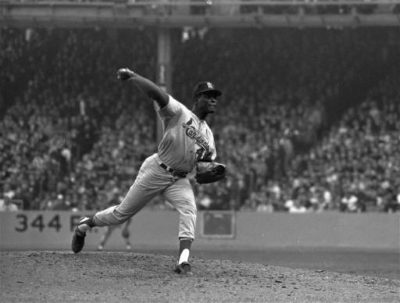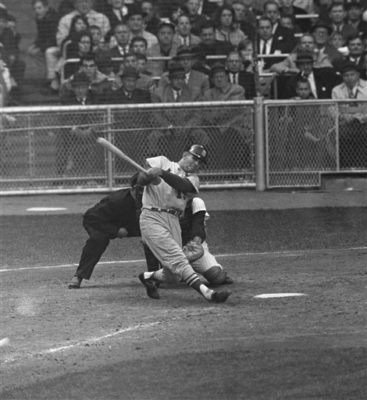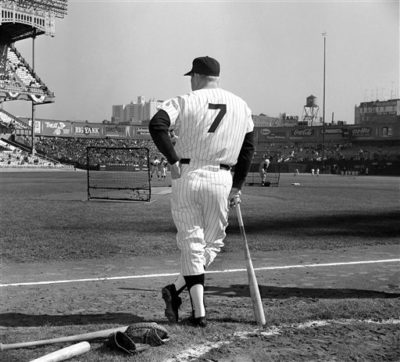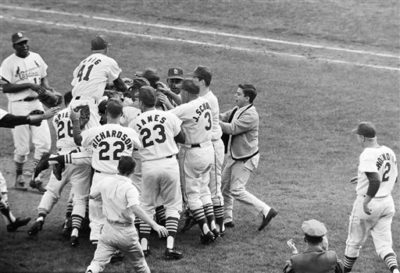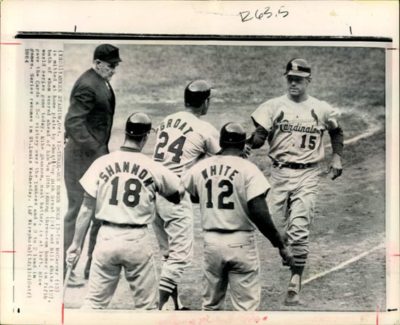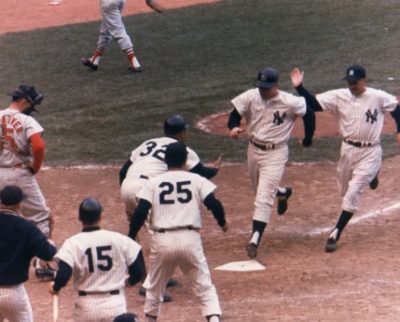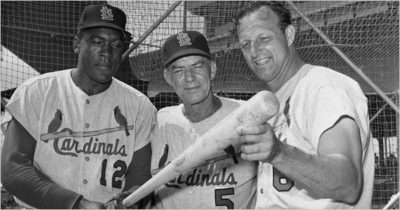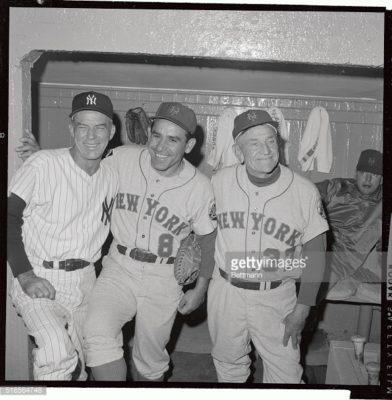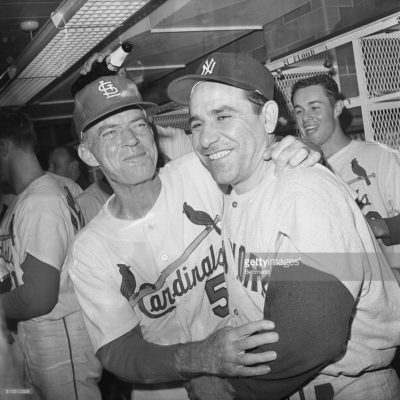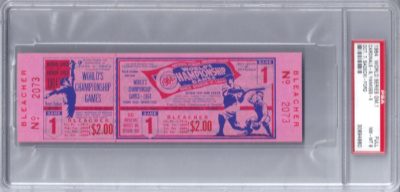Baseball History Comes Alive Now Ranked #2 by Feedspot Among All Internet Baseball History Websites and Blogs!
Guest Submissions from Our Readers Always Welcome!
1964 World Series Photo Gallery
Click on any image below to see photos in full size and to start Photo Gallery:
1964 World Series Aftermath: Baseball’s Version of “Musical Chairs!”
“I managed good but boy did they play bad.” –Johnny Keane, commenting on his lack of success as Yankees’ manager.
Our tour through the World Series stops today with a look at the events following the 1964 World Series. Sunday was the anniversary of a bizarre day in baseball history: 52 years ago, October 16, 1964, just 19 hours after the Cardinals defeated the Yankees in the 1964 World Series four games to three, Johnny Keane resigned as manager. At almost the same exact time, the Yankees fired first year manager Yogi Berra and replaced him with…you guessed it…Johnny Keane. Baseball’s version of “Musical Chairs” was now complete!
Johnny Keene was a baseball lifer who spent 35 years in the Cardinals organization. He became a minor league manager at age 26 in 1938. After 21 loyal seasons in the Cardinals’ farm system, he was named the Cardinals’ major league manager on July 6, 1961 replacing Solly Hemus. In his four seasons at the Cardinals’ helm, which included a World Series championship in 1964 – the first since 1946 – he posted a 317-247 record and never had a losing season. Prior to his arrival, the Cardinals had suffered through losing seasons in five of the previous seven years.
It was expected to be a four-team race in 1964 between the Dodgers, Giants, Reds, and Cardinals; but the surprise of the National League were the Phillies. As the season wore on and it looked like the Phillies had the pennant sewed up, the Cardinals, like many other teams, started looking towards 1965. Staring up at their second straight second place finish, the organization needed to figure out how to get to the next level.
Enter Branch Rickey. He was hired as a management consultant, and under his influence, the Cardinals were now “looking to go in a different direction,” as the tired old baseball cliché goes. One of Rickey’s first recommendations was to shake up the front office, including Keane’s friend and mentor, General Manager Bing Devine. Though nothing was official, there were also rumors flying that Keane himself was going to be sacked after the season. And his replacement? The name of former Cardinals’ manager and Branch Rickey protégé Leo Durocher was being bandied about. Johnny heard the rumors and wasn’t happy.
Loyalty was sacrosanct to Johnny Keane. Gussie Busch had broken Johnny’s cardinal rule and he just couldn’t forgive him. He felt betrayed by the Cardinals after his many years of loyal service. Johnny’s personal code of ethics required that he take action: He decided to quit.
But the Phillies epic collapse towards end of the 1964 changed the baseball dynamics, and the Cardinals suddenly – and unexpectedly – found themselves as the 1964 World Series champions. In one of the most bizarre press conferences the game has ever seen, Keane announced his resignation after the Cardinal’ World Series victory. He handed new GM Bob Howsam a letter he had written back in September. At the same time, Yogi Berra was being sacked in New York by the Yankees. Apparently a World Series appearance in his first year wasn’t good enough to save Yogi’s job. And who was Yogi’s replacement? Johnny Keane!
Keane never got much out of the Yankees during his tenure in New York. He just didn’t’ seem to be a good fit, as his distant demeanor clashed with the players and the press. Perhaps they resented him as an outsider. Maybe they were still reminiscing about the glory years under Casey Stengel. Whatever the reason, they finished a distant sixth in 1965. After a 4-16 start in 1966, Keane was out of a job.
While Johnny Keane took a lot of the heat for the Yankees performance, it was obvious that the Yankees were not the same team that had dominated baseball for the past 20 seasons. Meanwhile, the Cardinals achieved sustained success under new manager Red Schoendienst, winning the World Series in 1967 and the National League pennant in 1968.
Sadly, it was later revealed that the Cardinals had decided against firing Keane and were about to offer him a three year extension. Owner Gussie Busch was taken completely by surprise by Keane’s resignation, saying, “This really has shocked me. I didn’t know a thing about it until I saw Johnny this morning. All I can say is that I’m damned sorry to lose Johnny.”
Johnny Keane died on January 6, 1967 of a heart attack at the age of 55. Did he regret his decision to leave the organization in which he had spent most of his professional life and where he had achieved his most success? We’ll never know. It was suggested in baseball circles that the pressure of winning in New York could have led to Johnny Keane’s early death.
Gary Livacari
Photo Credits: All from Google search; featured photo from Getty Images
Information: Excerpts edited from article on Johnny Keane, https://retrosimba.com/2014/10/15/johnny-keane-to-gussie-busch-take-this-job-and-shove-it/
Subscribe to my blog for automatic updates and Free Bonus Reports: “Memorable World Series Moments” and “Gary’s Handy Dandy World Series Reference Guide.”
